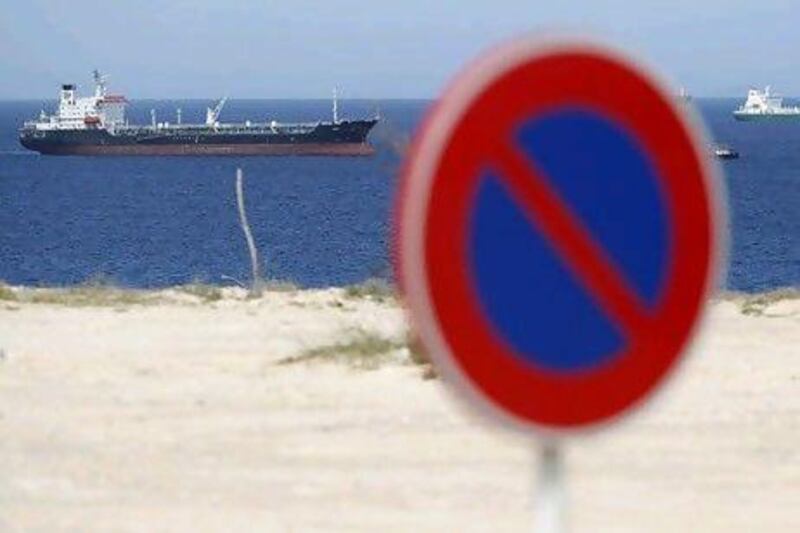Almost 15 years ago, I started my career in the oil industry by undertaking training on board large oil tankers that transport crude oil from Saudi Arabia to the United States.
The tanker crews always welcomed the shorter trip when we returned via the Suez Canal instead of having to travel around the tip of Africa. Eight hours' transit in the canal was an occasion to appreciate and reflect on the efforts that had been put into building this key shipping channel, and also the strategic importance of the Middle East and North Africa (Mena) region.
The so-called Arab Spring that brought political instability to Tunisia, Libya, Egypt, Yemen and, more recently, Syria, has brought another chance to reflect on the significance this region has on global oil markets.
The region has immense hydrocarbon resources, with 60 per cent of the world's proved oil reserves and 45 per cent of global gas reserves. Most of those resources are concentrated in the GCC, which is home to about 40 per cent of the world's proved oil reserves and 25 per cent of natural gas reserves.
So the Mena region, and the GCC in particular, is of great importance to the global energy market and to the economic stability and prosperity of the world. The current political unrest has already been reflected in a surge in oil prices, but the world hopes that this will be the only short-term effect of the transition that the region is experiencing.
Consider the case of Libya - a member of Opec, with the largest known national reserves in Africa. Libya is blessed with some of the world's highest-quality crude oil, and its proximity to Europe has always placed the country in a favourable position in the global oil market.
In 2010, Libya was exporting about 1.8 million barrels of oil per day in addition to substantial amounts of natural gas. It is therefore no coincidence that the Libyan revolution has been a reason for the recent rise in oil prices.
As a result of the escalation of events in Syria, Iran's oil production has begun to be damaged. Additionally, the European Union voted to stop buying Iranian oil from this summer, but the Iranians did not wait and cut off oil sales early. From its position as the global "swing producer", Saudi Arabia has recently reiterated its pledge to keep the oil market well supplied if sanctions hit Iran. However, any military sanction on Iran is likely to cause a host of serious events, which may include closure of the Strait of Hormuz.
Speak to any oil professionals who work on shipping oil through the strait and they will tell you of its importance to the industry. About 18 million barrels of oil pass through the strait daily. An alternative route could be the under-construction Fujairah Pipeline, which on completion should be able to deliver most of Abu Dhabi's oil exports to the Indian Ocean.
To put this into perspective, the amount of oil that could be shipped through this pipeline represents only 10 per cent of the total currently transiting the strait. Another alternative route is the Saudi pipeline, known as Petroline. However, this pipeline can carry only about 25 per cent of the amount of oil shipped through the strait. The closure of the strait would not only result in skyrocketing oil prices, but would also hurt the Iranian economy.
Thus, apart from being blessed with the vast majority of the world's hydrocarbon reserves, the region has a major geographic significance because of its influence on key oil and gas shipping routes.
Moreover, bearing in mind that production in many of the oilfields outside this region has already peaked, many industry analysts anticipate that the Mena region will be responsible for supplying a greater proportion of global oil production over the next 20 years. Substantial investment will be needed to develop oil and gas fields in the region.
Taking such factors into account, one can only envision an increasingly important position for the Mena region.
However, without greater effort to respond to increasing pressures, particularly with regard to issues related to transparency, social equality, democracy and unemployment, the region is destined to endure endless public uprisings with a disastrous impact on the global economy.
Yasser Al Saleh is a senior research fellow at Insead Innovation and Policy Initiative in Abu Dhabi
twitter: Follow and share our breaking business news. Follow us
iPad users can follow our twitterfeed via Flipboard - just search for Ind_Insights on the app.





